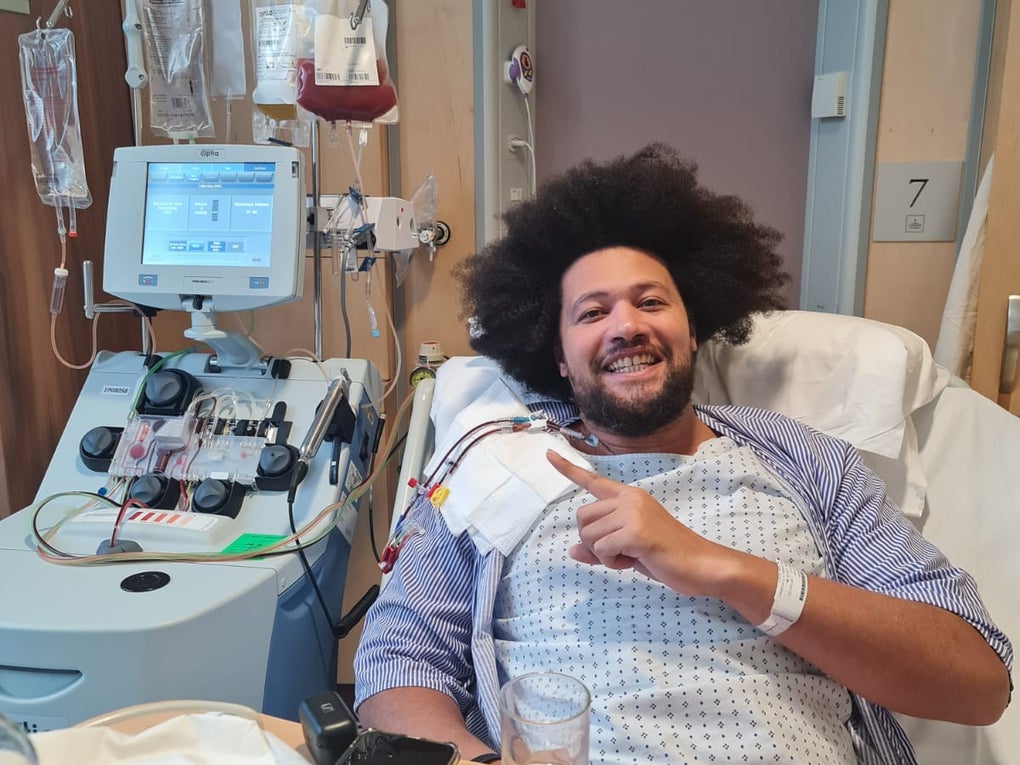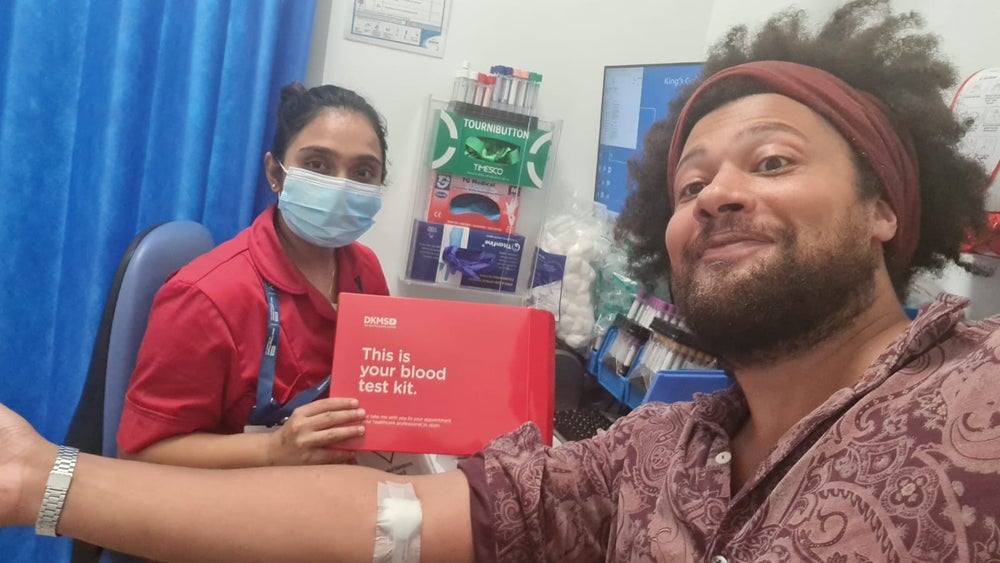
Being that one in a million chance
Fraser, who lives in London, donated his blood stem cells to a blood cancer patient in January 2023. A key motivation for Fraser to register as a donor was learning that there is a real need for more donors of black African and Caribbean backgrounds.
“My friends have changed the name of our WhatsApp group to ‘Fraser is a lifesaver’. Hopefully, me doing this will help someone else sign up and go on to save a life.”
In high demand
Right now, there are over 2,000 blood cancer and blood disorder patients in the UK in need of a blood stem cell donation from an unrelated donor.
After other therapies have been unsuccessful, a blood stem cell donation is often their best hope of a second chance at life. A person is most likely to be matched with someone from the same ethnic background; donors of African, Caribbean and other black heritage are always in high demand. Certain illnesses, such as multiple myeloma and sickle cell disease, disproportionately affect people from these backgrounds.
“When I got the call, I was over the moon. I thought, ‘This is awesome, I’m going to save a life! Actually, am I? What do I do?’ I had lots of questions. I wanted to know what the rest of the process was.”
Giving a lifesaving donation
Once a donor is matched with a patient, they will go through medical checks before donating their stem cells, typically from a line in their arm. The person’s stem cell level will return to normal shortly after donation.
“I was just really excited to do it. The only time I started thinking ‘hold on’ was when I was in hospital for pre-transplant checks and they took the samples. I had to have a neckline which made me a bit more nervous. The experience was physically fine but more of a psychological battle - even more rewarding knowing I had been through something rather than just giving away what I didn’t need.
“The staff at DKMS were really helpful. They took the time to explain things to me, answer all my questions, reassuring me if I was being a wuss! I also had a call from a doctor to walk me through the experience too.
“On the donation day, the staff at the transplant centre were very nice and accommodating. I was tired but by the next day I was back to normal. I haven’t had any side effects post-donation. I wasn’t sure how taxing donating would be so I made some healthy lifestyle changes to help me prepare and now I’m better off for the experience.”

Finding support
DKMS provides support for donors every step of the way including transport, accommodation, childcare and a letter to your employer if you will need time away from work.
“My work was really great about giving me the time off for the process and recovery. I didn’t need more than my normal sick leave policy anyway. One of our values is to make an impact that matters every day and this definitely counts towards that.
“I didn’t find out anything about my patient until after I donated. I kept wondering what kind of person it could be as it could be anyone in the world. I found out it was an adult woman in the UK which is amazing. Who knows, it could be someone I know.
“It’s a nice thought that comes up from time to time that I have done this thing for someone. It feels like I’ve already achieved something great in 2023 and also in life.
“I was always given the option to stop if I didn’t feel comfortable to continue with the donation. You’ll get the ‘feel good feeling’ if you sign up to the register and it’s always your choice to go on to donate. So, my advice? Do it!”
You could be someone’s one in a million
If you are aged 17-55 and in good general health, you could be a potential lifesaver for someone with blood cancer. It's easy - start by registering for your home swab kit!


